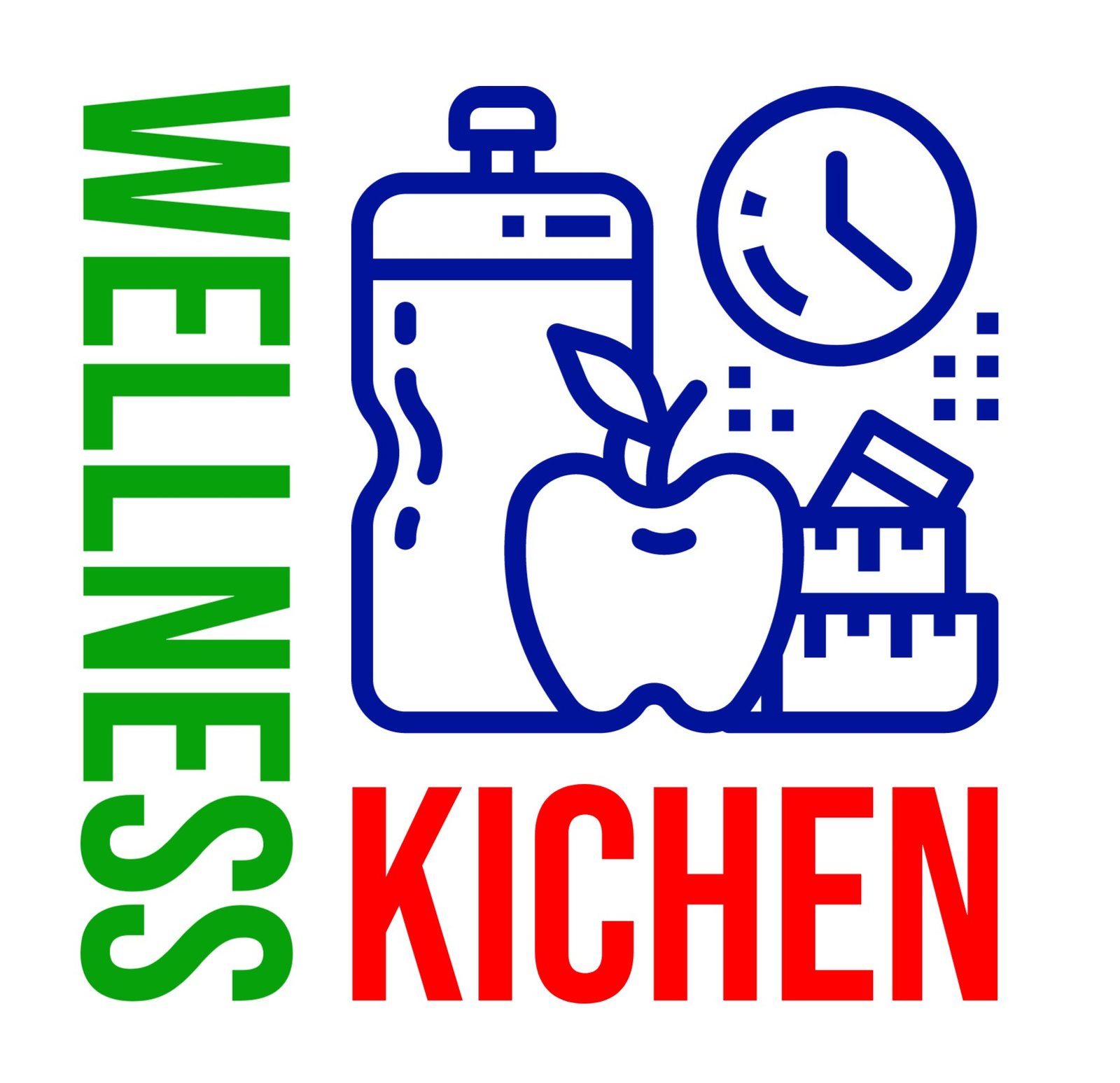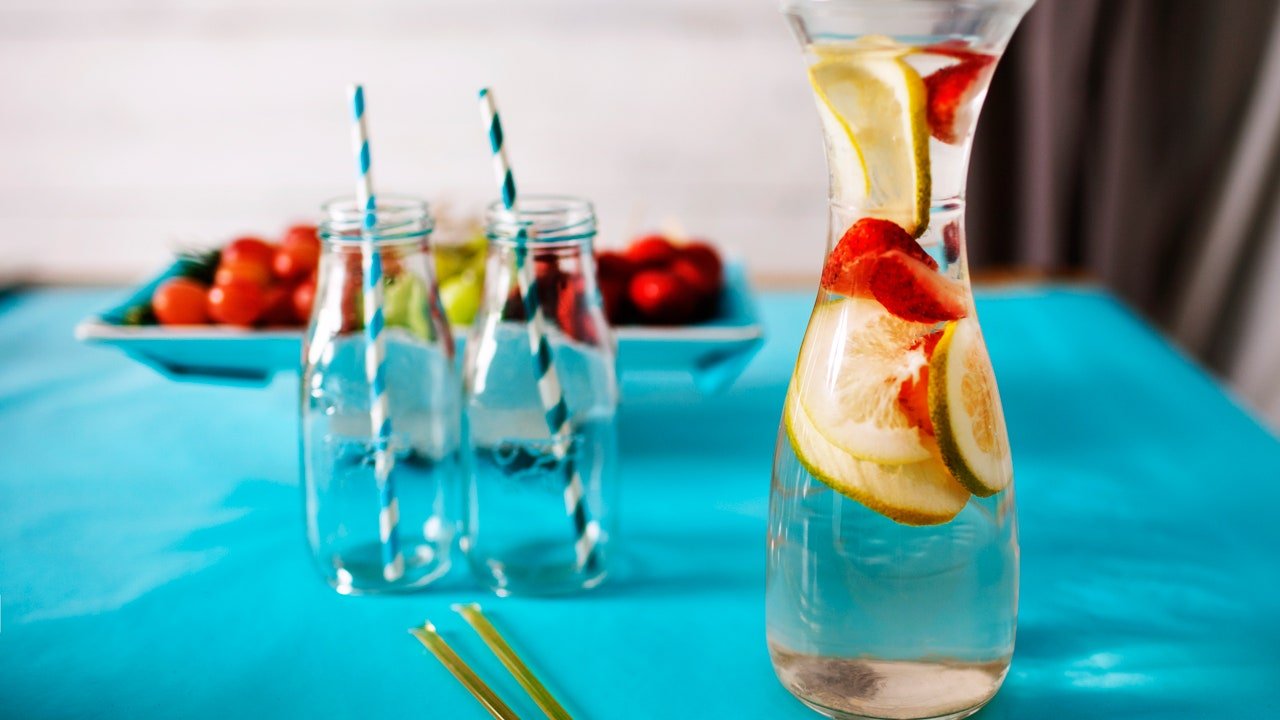If you went several days without drinking water, you’d be in a world of trouble. But the idea that eight glasses a day is optimal—well, that’s soggy logic.
In 1945, The Food and Nutrition Board of the National Academy of Sciences claimed that the body needed two-and-a-half liters of water a day (which is actually ten cups of water a day, even more than the widely-referenced eight)—without citing a clinical study! Not only did people take this recommendation as fact, they also ignored the next sentence: “Most of this quantity is contained in prepared foods.”
While ensuring that you’re adequately hydrated is important, how many of us view hydration doesn’t quite jibe with what the science tells us. Below, we’ve found the most common ways you could be drinking wrong, and what you should be doing instead. Read up, drink up, and don’t make these water mistakes count as one of the habits that make you Sick and Fat.
You Discount the Water Content of Solid Foods
About 20 percent of our daily H2O intake comes from solid foods — fruits and vegetables in particular. Although it’s good to be mindful of how much water your body asks for, you can also hydrate with fruits and veggies, most of which are largely water. A cucumber, for example, is 96.7 percent water. Lettuce, celery, tomatoes, watermelon, grapefruit and green peppers are more than 90 percent water. Unlike pure water, however, these foods are rich in a range of nutrients and vitamins. Eating a significant percentage of your water is an excellent way to achieve your health and fitness goals.
You’re Drinking More Water Than You Need
According to the Institute of Medicine (IOM), “the vast majority of healthy people adequately meet their hydration needs by letting thirst be their guide.” If you’re forcing yourself to chug through gallons of water, you might be drinking too much. And yes, there is such thing as “too much,” especially since there’s no scientific proof that drinking extra water has any health benefits.
Drinking too much can cause hyponatremia, which is also called “water intoxication”, a condition in which the sodium levels in the blood become dangerously low and can result in swelling in the brain, seizures, and coma. Under normal conditions, you’d have to drink a huge amount of water to experience hypernatremia; however, if you’re a serious runner or a particularly salty sweater, you could harm yourself by downing H2O too quickly.
You Leave A Glass on Your Night Stand
One thing that isn’t on the list of good things to before bed – Drinking water. The reasoning is quite intuitive: “If you drink too much right before bed, you may find yourself waking up multiple times in the middle of the night to urinate,” Instead, “start to taper off your fluid intake about three hours before bedtime,” which will allow your body to process the water and use the restroom before snuggling under the covers.
You Drink Water while Standing
Drinking water while standing does not allow your kidneys to properly filtrate the water. As a result, the impurities tend to get retained in them and the bladder. This can cause urinary tract disorders, and in more serious cases can even lead to the kidneys suffering permanent damage. Since the water goes directly through, the requires nutrients and vitamins don’t reach the liver and digestive tract. This is because when you stand and drink water, it travels through the system really fast and you risk your lungs and heart functions.
You’re Still Drinking Water Out of Plastic Bottles
We’ve said it dozens of times, and we’ll say it again: stop drinking your water from plastic bottles! These throw-away bottles are commonly made with Bisphenol A (or BPA for short), a hormone-disrupting chemical that can negatively impact fertility in both men and women, may promote cancer, and has also been been linked to obesity.
You’re Not Pairing Water with Lemon
Not only does throwing in a couple slices of lemon to your water add some zing to your bland beverage, it may also help you lose weight. D-limonene, a powerful antioxidant found in lemon peels, stimulates liver enzymes to help flush toxins from the body, according to the World Health Organization. Not only does the lemon peel help rid your body of inflammatory toxins, but the extra bit of vitamin C from the juices that seep into the water will help your body curb cortisol levels; and that’s good news since cortisol is the stress hormone that tells your body to store fat.
You Forget to Grab A Glass Upon Waking
If you aren’t drinking water in the morning, your metabolism is likely taking a hit. According to dieticians, one of the easiest and cheapest ways to give your metabolism a jolt is to drink 20 to 32 ounces of water (2-3 cups) shortly after waking. Why? During sleep, your body’s metabolic function slows, and your body just went around eight hours without fluids—which are essential to hundreds of metabolic processes. Dieticians suggests rehydrating before stressing your body with any other food or drink: “My clients who have implemented this report less bloating, more energy, and a smaller appetite,”
You Don’t Down One Between Alcoholic Drinks
Alcohol decreases the body’s production of anti-diuretic hormone (a compound that helps your body stay hydrated), so when you move onto that third round of booze, your body becomes increasingly dehydrated. And when you’re dehydrated, you can feel sluggish and bloated—two things that will act against you if you’re trying to drop a few pounds. “Make sure you have at least one or two glasses of water for each drink—and that you never drink on an empty stomach,”
You Don’t Realize Your Body Wants Water—Not Food
It’s not just you. In fact, there are several Reasons Why You’re Always Hungry, and not drinking enough water is one of them. A study in the journal Physiology & Behavior suggests people inappropriately respond to thirst over 60 percent of the time by eating instead of drinking. And that means you’re eating more calories than you need to. So, next time you’re hankering for a snack just after you finished a meal, try knocking back a cup of water before diving into your snack drawer and wait 20 minutes. If you’re still hungry, then you can eat something.
You Don’t Steep it With Green Tea
Water is still water even when you put a teabag in it. To get even more bang for your hydrating buck, why not make that teabag green tea? Researchers find that this leaf is particularly efficient at blasting flab thanks to its concentration of catechins: a group of antioxidative compounds that fry adipose tissue by revving the metabolism, increasing the release of flab from fat cells (particularly in the belly), then speeding up the liver’s fat-burning capacity. Sounds like a nutrition hole-in-one to us!
Or You Do Drink It with Tea… But It’s Bottled
Yes, we just recommended drinking your water in tea form, but we need to mention it’s best to brew your own rather than buy it in a bottle.
You Only Drink It Ice-Cold
Have you ever heard of the ayurvedic teaching that it’s easier for the body to absorb warm water and that it’s more soothing to the stomach? What about that ice-cold water kicks the body’s metabolism into gear? Despite one lonely 2003 study which found that people who drank ice water experienced a 30 percent increase in metabolism, there’s no evidence to support that cold water will help increase your metabolism any more than warm water. And there’s certainly no evidence to suggest that the body absorbs water any differently depending on the temperature. The take-home? Drinking water, period, is infinitely more important to your health and well-being than the temperature at which it’s served, so don’t turn down a glass if there’s no ice in it.
You’re Fooled By ‘Healthy’ Bottled Waters
Yes, they may “water” in their name, but these bottled beverages tend to be just as caloric—and sugar-laden—as a soda. If you want to infuse some flavor and nutrients into your water, we’d recommend adding a slice of lemon, strawberries, and mint to your water.
You Add Artificial Flavorings
Squeeze bottles are touted as a low-calorie way to flavor your water, but they’re usually just full of artificial colors, flavors, and sweeteners. That’s bad news since studies have shown that the high-intensity artificial sweetener sucralose, which is 1,000 times as sweet as table sugar, can confuse your sweetness receptors and cause you to overeat the next time you consume something that’s naturally sweetened.
You Don’t Drink it When You’re Tired
You don’t always need coffee to stay awake. Not only should you drink plenty of water during the day to stay hydrated, but you should also reach for a glass when you start feeling groggy. “In fact, even slight dehydration can significantly drain your energy levels“. That’s because your brain is made of 80 percent water, so your mental abilities and functions seriously depend on it. Sip on a glass, and mental flexibility automatically improves by 14 percent, according to one UK study.
You’re Not Drinking Enough
Updated guidelines by the Institute of Medicine recommend 91 ounces of water per day for women and 120 for men. However, they note that “the vast majority of healthy people adequately meet their hydration needs by letting thirst be their guide.” If you feel hungry, your mouth feels dry, or your urine looks like apple juice, you’re not drinking enough water. Make sure to carry around a BPA-free water bottle and have that be your go-to when those mid-day cravings start to emerge. And when you don’t hydrate with enough H2O, you’ll have to suffer the consequences.

